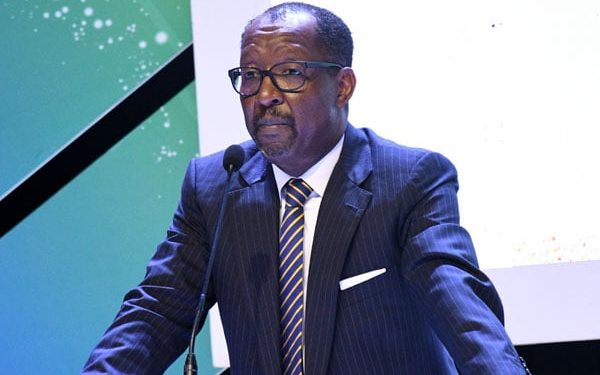25th September 2023.
KAMPALA, Uganda – Richard Byarugaba, the former Managing Director of the National Social Security Fund (NSSF), has taken legal action against the recent appointment of Patrick Ayota as his successor. Byarugaba contends that Ayota’s appointment is unlawful and in a violation of the amended NSSF Act.
In a recent court filing, Byarugaba argued that Patrick Ayota was ineligible for the position as he was already serving as the Deputy Managing Director on a fixed 5-year term. Byarugaba, through his legal representatives, also seeks to have Labour Minister Betty Amongi’s appointment of Ayota quashed on the grounds of Ayota’s ineligibility.
These legal actions are part of an ongoing dispute that began when Byarugaba challenged Amongi’s decision to reject his re-appointment as NSSF Managing Director, as recommended by the NSSF board and required by law. Byarugaba initially sued Attorney General Kiryowa Kiwanuka and Minister Amongi on August 9th, 2023, seeking an order to compel the minister to fulfill her statutory duty to complete his re-appointment.
In his latest application to the court, Byarugaba emphasizes that amendments to his pleadings are necessary to address new developments at NSSF, which he believes are manifestly unlawful and in violation of the amended NSSF Act. He alleges that the NSSF board did not exercise its independent judgment when making the new appointments but rather acted under the influence of Minister Amongi, contradicting their own prior written advice.
Byarugaba is also seeking court permission to file a supplementary affidavit to provide evidence demonstrating that Ayota’s appointment was not only illegal but also irrational, seemingly intended to frustrate his legitimate expectations.
The trial judge, Musa Ssekaana, has scheduled a hearing for Byarugaba’s application on September 22, 2023.
The unfolding legal battle between Richard Byarugaba and the authorities highlights the complexities surrounding leadership transitions within the NSSF and the importance of adhering to statutory requirements in such appointments. The outcome of this case will be closely watched, as it could have significant implications for the future governance of the NSSF.

















